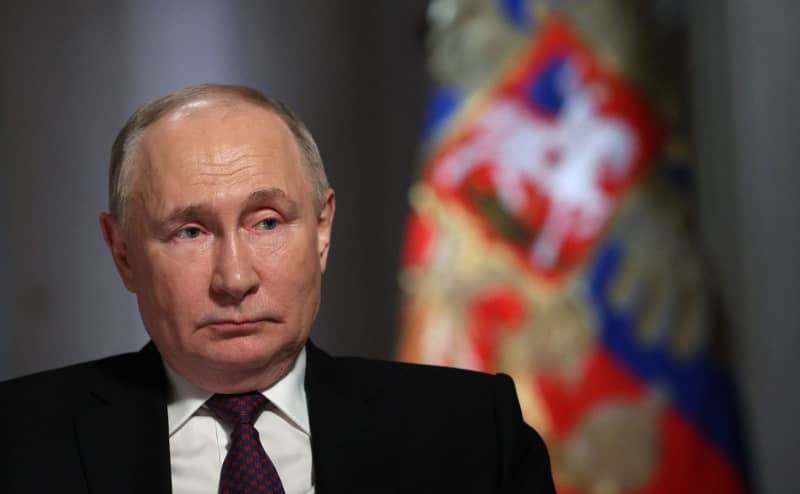Overshadowed by the war in Ukraine and with the opposition excluded, Russia continued its presidential election on Saturday to keep Russian President Vladimir Putin in power.
By the afternoon of the second of three voting days, Russia’s central election commission announced a voter turnout of more than 50%. However, observers pointed to evidence of fraud and manipulation, with reports that state employees in particular have already been urged to vote en masse.
Before a planned protest on Sunday, opponents of Putin in Moscow also reported receiving threatening messages.
At 4 pm in Moscow (1300 GMT) on Saturday, more than one in two eligible voters had already cast their vote either at a polling station or online, the deputy head of the election commission, Nikolai Bulayev, said, according to the Interfax news agency.
Voter turnout is an important figure for the Kremlin so that Putin can ultimately show that the majority of the population allegedly actively supports him and his war against Ukraine. Based on data from state pollsters, the Kremlin is aiming for a turnout of more than 70%.
However, according to reports by independent observers, employees of state-owned companies were urged to vote in large numbers. Hundreds of companies have already published group photos of their employees in front of the respective polling stations on social networks. Videos also showed people being driven to polling stations in buses.
There were also reports of great pressure being exerted on Ukrainian people, who are supposed to take part in votes in the Russian-occupied territories of Ukraine, which are illegal under international law and therefore not recognized outside Russia.
The vote in Russia proper, which is intended to secure Putin a fifth term in office as president, is scheduled to continue until Sunday evening at 1800 GMT.
The 71-year-old Russian president has no real opponents. Serious opposition figures have either not been authorized as candidates, have fled abroad or are in prison camps. Opponents of the Kremlin are therefore calling for protests.
Russian citizens who may be thinking of supporting a planned protest on Sunday have reportedly received warnings on their mobile phones ahead of the event.
The independent news website Meduza, among others, published screenshots of messages sent on Saturday from Moscow to its readers saying: “Regardless of the fact that you support the ideas of extremist organizations, we are pleased that you will be voting in Moscow.”
This is followed by an invitation to take part in the election “calmly” and “without queues and provocations.”
It was not initially known who was behind the messages sent on Telegram and Signal and how the recipients were selected.
Russian opposition activists have called on people to assemble at their polling stations at exactly noon in their time zone on Sunday as part of a resistance action. The massive country has 11 time zones.
It is hoped that the long queues will show the dissatisfaction in the country. Russian authorities, on the other hand, have already threatened to prosecute participants in advance, claiming that the campaign shows “signs of extremist activity.”
Isolated protests were observed on the first day of voting on Friday, In some polling stations, men and women tipped paint into the ballot boxes or even set small fires. Several arrests were made.
On Saturday, a woman in Yekaterinburg in the Urals was prevented by police officers from trying to pour green liquid into a ballot box.
In total, Moscow is calling on 114 million people to take part in the vote, which has been criticized as completely undemocratic.
More than 4.5 million of the eligible voters are in the newly occupied parts of the Ukrainian regions of Donetsk, Luhansk, Zaporizhzhya and Kherson. Voting is also being organized on the Black Sea peninsula of Crimea, which Moscow annexed in violation of international law back in 2014.
Opponents of the Kremlin are calling on the international community not to recognize the result.
But even on Russian territory, the vote is overshadowed by the war that Putin ordered more than two years ago.
On the second day of voting, the border region of Belgorod again reported heavy shelling. According to Governor Vyacheslav Gladkov, two people were killed on Saturday.
Far from the front in the Samara region, there were also drone attacks on two oil refineries, according to the Russian authorities. A fire broke out at one plant. Sources in the Ukrainian secret service SBU spoke of three refineries being attacked.


